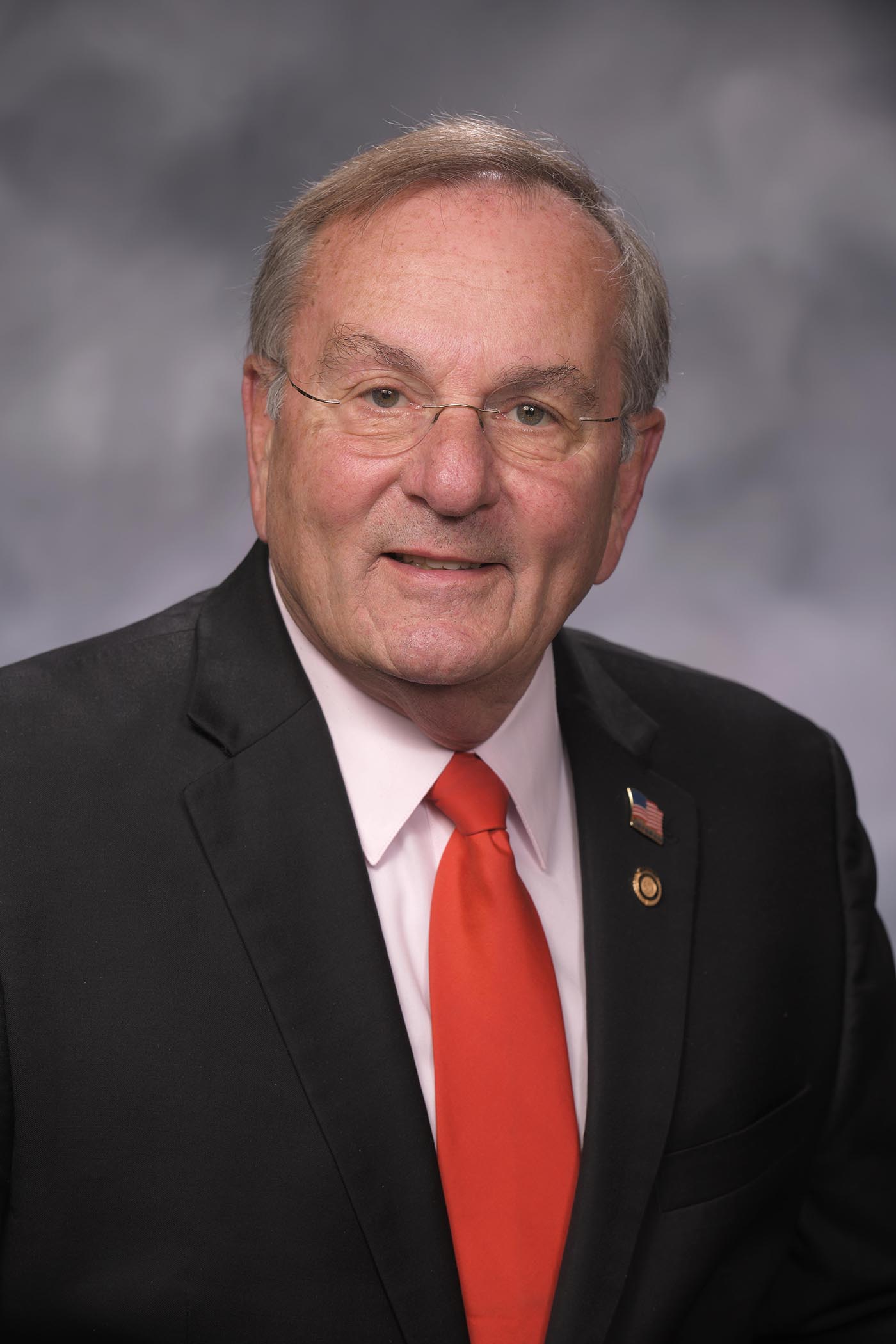It's not tax season, but taxes are on the minds of people running for office.
In light of the Missouri Legislature's recent special session passage of a tax-cut bill, which Gov. Mike Parson signed, the News Tribune asked candidates for the Missouri House of Representatives 60th District several questions concerning taxation.
Rep. Dave Griffith, the Republican incumbent, said the tax cut will allow his constituents to keep more of their hard-earned money.
His challenger, J. Don Salcedo, a Democrat, argues the budget should improve the lives of all residents, and the new tax cuts are "... lining the pockets of big businesses and those at the top."
The men are vying to see who will represent the district that makes up most of Jefferson City. The district generally follows city lines, except it excludes North Jefferson City (north of the Missouri River) and a portion of the city south of U.S. 50 and west of Missouri 179.
"The tax refund proposed during the regular session would have benefited a portion of Missouri taxpayers, however this tax cut will benefit all Missourians," Griffith said. "The tax plan signed by the governor provides legislation that would eventually reduce the state's top income tax rate to 4.5 percent -- a marked difference from where it is today and certainly where it was five years ago."
Griffith said he was uncertain about how much individual taxpayers would save, but the plan exempts the first $1,000 of income from taxation. Before passage of the new tax plan, the exemption was $100.
The tax changes disproportionately help Missouri's wealthiest residents, Salcedo said. He argued the cut would not help a third of Missourians -- those who live on fixed incomes.
The Missouri Budget Project, which informs public policy decisions through research and analysis of the state budget, determined that under the new rate, taxpayers with incomes of $22,000 per year or below would receive an average tax cut of $3 per year. For families near Missouri's median household income of $57,290, the average tax cut is $66.
Most of the voters Griffith has spoken to, he said, want their tax base reduced.
"I believe if the state of Missouri has an excess of funds (and) our economy is robust, that it is our obligation as legislators to return Missourians' hard-earned dollars to them," he said.
The $66 savings might be enough to buy a dinner or two for Missourians earning a median wage, Salcedo said. But the tax cut would save the wealthiest Missourians thousands of dollars annually.
"The huge discrepancy reveals the misplaced priorities of Republicans," he said.
The News Tribune asked the men about sustainability of temporary pay increases for teachers.
Salcedo, who is a retired educator and National Education Association organizer, has often pointed out that several of his top priorities revolve around education. He said teachers should be paid based on the value they produce.
Missouri continues to rank near the bottom of states for starting teacher salaries, he said. It is 45th of 51 states in the nation (including the District of Columbia) in teacher pay, according to www.business.org.
"The temporary program to increase salaries for teachers doesn't benefit Jefferson City Public Schools," Salcedo said. "For other school districts, the results are a mixed bag -- since the ability of local districts to raise and maintain their portion of the funds varies across the state."
Missouri must find long-term solutions to increase pay, which will help attract and retain good teachers for all schools in the state, he said. The state should not rely on temporary fixes.
"Unfortunately, Republicans have been more focused on undermining trust in our public schools and teachers, while voting to shift tax dollars away from public education to private and for-profit entities," Salcedo said.
The Legislature provided historic funding for education during the past session, Griffith argued.
"In last year's budget, $21.8 million was allocated to partner with school districts to increase baseline K-12 educator pay to $38,000 per year," he said. "The amount passed for some communities and counties just would not be sustainable but that option is available. We need to do whatever we can to recruit and retain our teachers, and I believe Jefferson City School District is doing an excellent job."
Additionally, the candidates fielded questions about state worker pay. Griffith pointed out Missouri is the largest employer in Jefferson City.
"And I have advocated for (state employees) every one of the four years I have served," he said. "State employee pay increases have, by statute, been approved by the General Assembly, and while we took care of our employees last year, we did not address that in the current fiscal year. I will continue to advocate for our state employees, and while we are no longer the worst state (in state worker pay), we are still at the bottom nationwide, an issue I will continue to address."
Despite Missouri having recently given state workers a cost-of-living pay increase, Missouri remains near the bottom of state worker pay rankings, Salcedo agreed.
"And Missouri ranks in the bottom 10 of states in how we meet citizens' health care needs, has one of the highest maternal mortality rates and longest Medicaid wait times," Salcedo continued. "Giving tax relief to the wealthy when the state is failing in so many areas is a bad policy decision."



